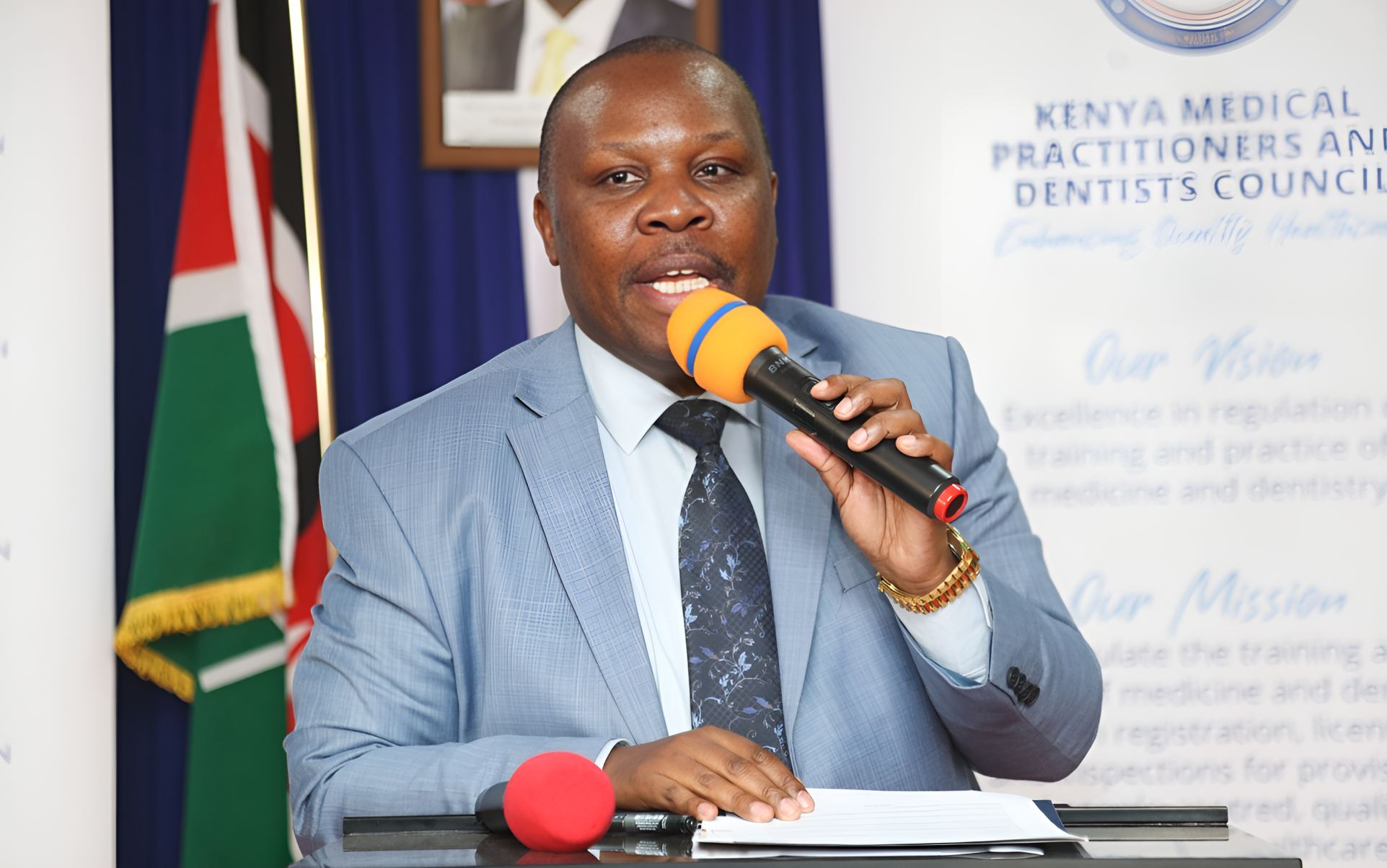Health facilities face penalties for hiring unregistered practitioners , KMPDC warns

Through a notice issued by Chief Executive Officer David Kariuki, the Council reminded both health workers and facilities that it is a criminal offence to practice or hire without proper registration and licensing from the Council.
The Kenya Medical Practitioners and Dentists Council (KMPDC) has begun a tough crackdown on unlicensed medical, dental, and community oral health practitioners operating in the country.
Through a notice issued by Chief Executive Officer David Kariuki, the Council reminded both health workers and facilities that it is a criminal offence to practice or hire without proper registration and licensing from the Council.
“We are committed to protecting patient safety and ensuring only qualified practitioners operate in Kenya,” Kariuki said.
According to the Council, anyone practicing medicine or dentistry without KMPDC approval faces a fine of up to five million shillings or imprisonment of up to five years—or both.
Similarly, anyone who hires or engages such individuals risks a fine of up to ten million shillings or a jail term of up to five years.
“This law applies to both Kenyan citizens and foreign nationals,” the Council noted.
It added that every health facility has the duty to confirm that its workers are fully licensed. Any facility that fails to do so is directly responsible for breaking the law.
Foreign practitioners must only operate within the locations specified on their licenses, and every health institution must inform the Council before engaging any of them, even if they are already licensed.
Those coming to Kenya for postgraduate studies must also register with KMPDC before starting any study or clinical work for proper assessment and eventual licensing.
KMPDC directed all facilities currently hosting unregistered or unlicensed practitioners to report them to the Council immediately.
Kariuki said the Council is actively inspecting facilities and reviewing the status of all foreign practitioners. “We are conducting audits and inspections to make sure no one is operating outside the law,” he stated.
The Council warned that ignoring these legal requirements puts lives at risk and erodes public confidence in healthcare services. “No one should take this lightly. Non-compliance endangers lives,” Kariuki added.
